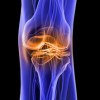
In spring, many people start taking vitamins — for immunity, energy, skin, or simply “just in case.” But often they do it chaotically: taking everything at once in the morning, washing it down with whatever is available, forgetting about dosages and compatibility.
⚠️ The effectiveness of vitamins largely depends on the timing of intake, their combination with food, and even what you drink them with. If you don't consider these factors, most of the beneficial substances simply won't be absorbed, and the effect will be minimal — or there won't be any effect at all.
Basic rules:
✔️ Fat-soluble vitamins (A, D, E, K) should be taken with meals containing fats. Otherwise, the body won't be able to absorb them. Add nuts, oil, avocado, or at least yogurt when taking them.
✔️ Vitamin C is best taken in the morning, before or during breakfast. It boosts energy and supports the immune system, but it can irritate the stomach — it’s better not to take it on an empty stomach if you have gastritis.
✔️ Iron is recommended to be taken on an empty stomach, with water containing lemon or orange juice. Do not combine it with milk, tea, or coffee — they interfere with iron absorption.
✔️ Calcium is best taken in the evening. It helps muscles relax, improves sleep quality, and reduces nighttime cramps.
It’s important to remember: vitamins are not harmless candies. An excess, especially of fat-soluble ones, can be toxic to the body. Before taking supplements, it’s better to get blood tests and consult a doctor to determine if you really need them.
Write a review
Required fields are marked with *
Categories
- News (42)
- Therapy (31)
- GP (23)
- Endocrinology (8)
- Cardiology (8)
- Ortopedics (4)
- Dermatology (3)
- urology (1)
- Check-up (1)
- Ultrasound (1)
Articles
Archive
- February 2026 (8)
- January 2026 (8)
- December 2025 (6)
- November 2025 (6)
- October 2025 (6)
- September 2025 (6)
- August 2025 (7)
- July 2025 (4)
- June 2025 (11)
- May 2025 (9)
Categories
- News (42)
- Therapy (31)
- GP (23)
- Endocrinology (8)
- Cardiology (8)
- Ortopedics (4)
- Dermatology (3)
- urology (1)
- Check-up (1)
- Ultrasound (1)









Comments (0)